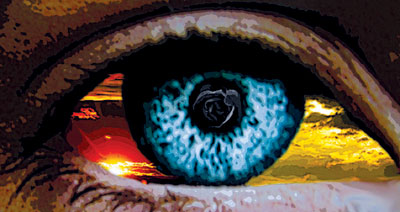All Nonfiction
- Bullying
- Books
- Academic
- Author Interviews
- Celebrity interviews
- College Articles
- College Essays
- Educator of the Year
- Heroes
- Interviews
- Memoir
- Personal Experience
- Sports
- Travel & Culture
All Opinions
- Bullying
- Current Events / Politics
- Discrimination
- Drugs / Alcohol / Smoking
- Entertainment / Celebrities
- Environment
- Love / Relationships
- Movies / Music / TV
- Pop Culture / Trends
- School / College
- Social Issues / Civics
- Spirituality / Religion
- Sports / Hobbies
All Hot Topics
- Bullying
- Community Service
- Environment
- Health
- Letters to the Editor
- Pride & Prejudice
- What Matters
- Back
Summer Guide
- Program Links
- Program Reviews
- Back
College Guide
- College Links
- College Reviews
- College Essays
- College Articles
- Back
The Cycle
The day I was born, I was a blank slate. My parents raised me to hold their beliefs, and my teachers were tasked with educating me, teaching me how to fit into society’s norms, in hopes that I would one day be successful. What I did not know was that from birth I had been placed into a cycle of anger, distress, sadness, and conflict. This is the cycle of socialization.
My parents told me to love and care for all, yet they made racist jokes and spat homophobic slurs at the television screen. These prejudices and stereotypes stuck with me like glue as I began school, having burrowed deeper and deeper within my mind. My teachers taught me about oppression and the activist protests of various groups, yet my peers, filled with confusion and insecurity, felt compelled to joke about it, further amplifying and internalizing the feelings I have.
Those thoughts, once at the forefront of my mind, were now deeply rooted within myself. Holding those feelings, I read through countless articles, watched the news, and browsed the message boards of various websites. As the thoughts and feelings grew, my emotions began to run rampant. From offensive messages spat out online without thinking of others to having witnessed my peers mock and harass people based upon their race, gender, and other identities, I felt dehumanized.
Overtaken by the stress, guilt, and self-hatred inside, my feelings had become corrupt. Having isolated myself from everyone else, I thought back to the cycle of socialization and how it had taken hold of me. Eventually, I reached my limit and came to a realization. My reluctance to act when I saw oppression was hurting myself even more. I decided that it was time to stop the cycle.
To escape, I questioned my thoughts, feelings, and actions, taking a stand and stepping in the direction of change. The question that I have for you is this: Will you continue to promote the status quo, or will you question the cycle and break from it?

Similar Articles
JOIN THE DISCUSSION
This article has 0 comments.

The Cycle was a piece of writing that I created over the summer while I attended Anytown. Anytown is a 7 day camp dedicated to bringing together people from different backgrounds, and teaching them how to administer equity training to bring about change within both their schools and communities. One of the things that stuck out to me the most while I was there for the week was the Cycle of Socialization.
To put it simply, the Cycle of Socialization is a cycle which all of us are born into from birth. Starting off as blank slates, we begin to internalize words that connect to various forms of oppression and stereotyping within the back of our minds. Although they may be beliefs that one does not personally hold, the brain subconsciously thinks of a multitude of stereotypes for specific groups of individuals because so many of them are used within our society today.
The reason why I chose to write this piece was to help educate others on the importance of building bridges and promoting diversity within our community. Martin Luther King Jr. once said “Darkness cannot drive out darkness; only light can do that. Hate cannot drive out hate; only love can do that.”. To promote change and diversity within our society, we all must love one another. If all of us do that, then we together will be able to topple the table of oppression that our society rests upon.